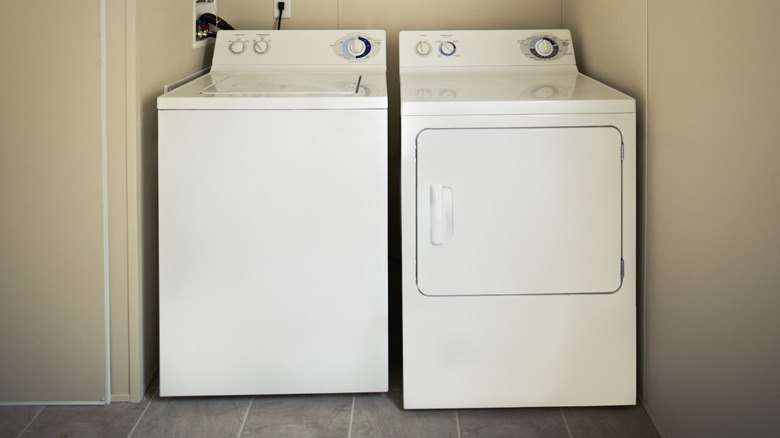Why You Might Think Twice Before You Replace Your Old Fashioned Washing Machine
Wondering if it's time to upgrade your aging washing machine? A few important factors may influence your decision. Washing machines aren't made the way they used to be, and you could be benefitting from that in more ways than you realize. For one thing, your old-fashioned machine may be getting your clothes cleaner. Older machines are made with agitators, a rotating post that breaks up stains and removes tough dirt and grime from fabrics. Today's machines are made with impellers, a spinning cone or disc that is gentler on clothes and may not get them as clean. Old-fashioned washing machines come with other benefits, too, such as durable and long-lasting materials, simpler parts, and functions that make them easier to use and fix in some cases.
However, when it comes to big purchase decisions like major home appliances, there may not always be a straightforward answer. Frequently used appliances that are over 10 years old are typically more likely to break down. A small fix here and there could be all it takes to keep your washing machine in good shape, especially if it has been well cared for over the years.
There are also other factors that make older appliances less practical than newer ones. Although keeping your old washing machine could save you the upfront cost of buying a replacement, it could also cost you in other ways, such as higher utility bills. The decision to replace an old appliance comes down to personal preferences and priorities. That said, there are good reasons to think twice before bidding your old-school washing machine farewell.
Things to consider before replacing your old washing machine
In the early days of home appliance manufacturing, washing machines were built to last and constructed with durable materials and parts that were relatively easy to replace or fix. Today's computerized washing machines may have high-tech features, but these elements could also prove to be more difficult to repair. With that being said, it may be more cost-effective to repair instead of replace. On the other hand, if your old machine is constantly breaking down or causing bigger problems such as leaks, these may be signs that your washing machine is too old to repair.
Old washing machines have their upsides, but they are not always the most practical. Newer machines conserve significantly more energy and water with every cycle. High-efficiency washing machines use around 30% to 50% less water than older machines and require 50% to 60% less energy to run, according to the Massachusetts Water Resources Authority. That's why replacing old appliances is the easiest way to save on your water bill – and your energy bill, too. Today's washing machines also offer more customizable settings that are designed to handle different types of fabric, helping your clothes last longer.
Old machines with agitators may get your clothes cleaner, but it could damage certain fabrics. Some washing machines even come with a pet hair removal setting, a game-changer for pet owners. Many modern washer and dryer sets can be stacked on top of one another, which is key for saving space in smaller homes. However, there are some hidden downsides to stackable washers and dryers, too. It may be tricky to know whether your old machine has a few good years left, but at least you are equipped to make an informed decision.

